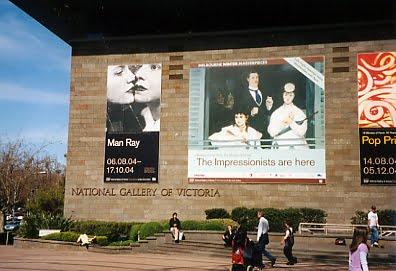The Judgement of Paris : Manet, Meissonier and an Artistic Revolution
by Ross King
This is an engrossing account of the decade between 1863 (when the first Salon des Refusés showed paintings rejected by the Salon of the French Academy) to 1874, the date of the first Impressionist exhibition.
The conflict between academicians and innovators during these years is dramatised by contrasting the careers of two very different artists: Ernest Meissonier, a conservative painter celebrated for detailed historical subjects, and Édouard Manet, whose paintings caused such uproar at the time.
Ernest Meissonier was the most celebrated artist of his day, showered with medals and honours. His works fetched record prices, while Manet was a laughingstock, scorned by the critics and the public alike.
But History has, as usual, sorted out the men from the boys… "Ernest who?" We all know who Manet is!
Many other artists of the day, among them Courbet, Degas, Morisot, Monet and Cézanne, are included in this compelling narrative of artistic life in Paris during a turbulent era. I was very interested to learn that what shocked people most about Manet's "Le déjeuner sur l'Herbe" was not the naked lady, but the fact that the men were (shock, horror!) not dressed in suits and top hats, but actually wore ordinary old everyday clothes.
I was made aware once again of how painters work in the context of the politics of the day, and how much schools of art are influenced by what is happening in society at the time. I always believed, as I suppose most of our members do, that the famous Salon des Refusés of 1863 was arranged by the rejected painters who were determined that the public should see their work.
Not a bit of it! The painters were, for the most part, reluctant to offend the judges of the Salon by participating in the mutinous exhibition and had to be coaxed to allow their works to be hung. It was the King who insisted on holding the exhibition, because his popularity was at a low ebb, elections were looming and he feared being ousted by the Republican movement.
This book reads as easily as a novel; it gives a fascinating account of the artistic civil war that raged around the Paris Salons in the decade that saw the rise of the wild tribe of upstarts who were contemptuously called "impressionists", painting, as they did, scenes of contemporary life with seemingly slapdash technique. Meticulously painted scenes from history, the Bible or the Classics were considered the only fit and proper subjects to hang on the walls of the Salon.
Ross King explains the bureaucratic machinery of the Salons in fascinating detail: how juries were selected, and how both artistic and national politics entered into the picture. He also vividly conveys the humiliation of the spurned artists, who received no explanation for the decision of the jury, simply an order to pick up their work, stamped with a large scarlet R on the back.
Mr King has written several other books that look interesting to me, notably "Michelangelo And The Pope's Ceiling" and "Brunelleschi's Dome : The Story Of The Great Cathedral In Florence". I am going to make it my business to get hold of them.



No comments:
Post a Comment